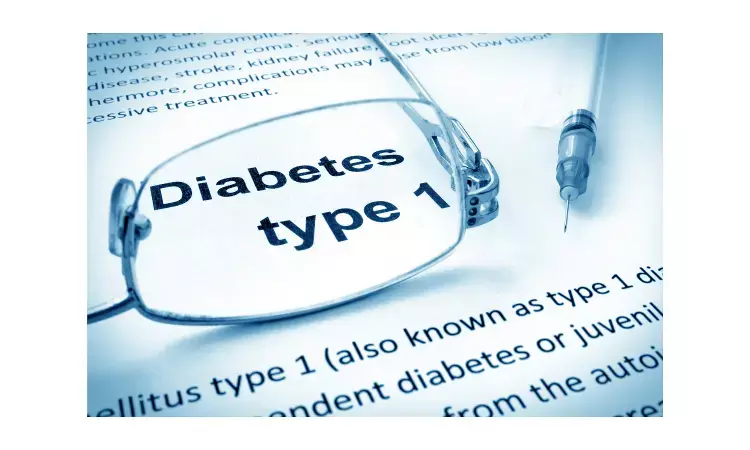- Home
- Medical news & Guidelines
- Anesthesiology
- Cardiology and CTVS
- Critical Care
- Dentistry
- Dermatology
- Diabetes and Endocrinology
- ENT
- Gastroenterology
- Medicine
- Nephrology
- Neurology
- Obstretics-Gynaecology
- Oncology
- Ophthalmology
- Orthopaedics
- Pediatrics-Neonatology
- Psychiatry
- Pulmonology
- Radiology
- Surgery
- Urology
- Laboratory Medicine
- Diet
- Nursing
- Paramedical
- Physiotherapy
- Health news
- Fact Check
- Bone Health Fact Check
- Brain Health Fact Check
- Cancer Related Fact Check
- Child Care Fact Check
- Dental and oral health fact check
- Diabetes and metabolic health fact check
- Diet and Nutrition Fact Check
- Eye and ENT Care Fact Check
- Fitness fact check
- Gut health fact check
- Heart health fact check
- Kidney health fact check
- Medical education fact check
- Men's health fact check
- Respiratory fact check
- Skin and hair care fact check
- Vaccine and Immunization fact check
- Women's health fact check
- AYUSH
- State News
- Andaman and Nicobar Islands
- Andhra Pradesh
- Arunachal Pradesh
- Assam
- Bihar
- Chandigarh
- Chattisgarh
- Dadra and Nagar Haveli
- Daman and Diu
- Delhi
- Goa
- Gujarat
- Haryana
- Himachal Pradesh
- Jammu & Kashmir
- Jharkhand
- Karnataka
- Kerala
- Ladakh
- Lakshadweep
- Madhya Pradesh
- Maharashtra
- Manipur
- Meghalaya
- Mizoram
- Nagaland
- Odisha
- Puducherry
- Punjab
- Rajasthan
- Sikkim
- Tamil Nadu
- Telangana
- Tripura
- Uttar Pradesh
- Uttrakhand
- West Bengal
- Medical Education
- Industry
Insulin degludec has lower rates of nocturnal hypoglycaemia in T1D compared to insulin glargine: Study

Nocturnal hypoglycemia is a serious complication of insulin-treated diabetes, which commonly goes undetected.
Patients with T1D have lower rates of nocturnal symptomatic hypoglycaemia and all-day severe hypoglycaemia with insulin degludec as compared with insulin glargine U100, finds a new study
The findings of the study are published in Diabetes,Obesity and Metabolism journal.
The objective of the study was to investigate whether insulin degludec compared with insulin glargine U100 reduces the risk of nocturnal and severe hypoglycaemia in patients prone to nocturnal severe hypoglycaemia.
The researchers conducted a randomized, controlled, open-label cross-over trial and compared the frequency of symptomatic hypoglycemia on insulin degludec versus insulin glargine in 149 patients with T1D who had at least one episode of severe nocturnal hypoglycemia within the last 2 years.
The study was two-year prospective, randomised, open, multicentre, cross-over trial. A total of 149 patients were randomised 1:1 to basal-bolus therapy with insulin degludec and insulin aspart or insulin glargine U100 and insulin aspart. The primary endpoint was the number of blindly adjudicated nocturnal symptomatic hypoglycaemic episodes. Secondary endpoints included the occurrence of severe hypoglycaemia. We analysed all endpoints by intention-to-treat.
It was found that those on insulin degludec experienced less nocturnal hypoglycemia, with a relative rate reduction of 28% for glucose less than 70 and 37% for glucose less than 54. No difference in daytime hyperglycemia between insulin glargine- and insulin degludec-treated patients was observed.
The results of the study were
• Treatment with insulin degludec resulted in a 28% (95%CI: 9-43; p=0.02) relative rate reduction (RRR) of nocturnal symptomatic hypoglycaemia at level 1 (≤3.9 mmol/L).
• A 37% (95%CI: 16-53; p=0.002) RRR at level 2 (≤3.0 mmol/l), and a 35% (95%CI: 1-58; p=0.04) RRR in all-day severe hypoglycaemia compared to insulin glargine U100 was found.
The data suggests that insulin degludec use reduces nocturnal hypoglycemia.
Bjergaard and team concluded that patients with T1D are prone to nocturnal severe hypoglycaemia and have lower rates of nocturnal symptomatic hypoglycaemia and all-day severe hypoglycaemia with insulin degludec as compared with insulin glargine U100.
Reference: https://doi.org/10.1111/dom.14574
Medical Dialogues consists of a team of passionate medical/scientific writers, led by doctors and healthcare researchers. Our team efforts to bring you updated and timely news about the important happenings of the medical and healthcare sector. Our editorial team can be reached at editorial@medicaldialogues.in.
Dr Kamal Kant Kohli-MBBS, DTCD- a chest specialist with more than 30 years of practice and a flair for writing clinical articles, Dr Kamal Kant Kohli joined Medical Dialogues as a Chief Editor of Medical News. Besides writing articles, as an editor, he proofreads and verifies all the medical content published on Medical Dialogues including those coming from journals, studies,medical conferences,guidelines etc. Email: drkohli@medicaldialogues.in. Contact no. 011-43720751


